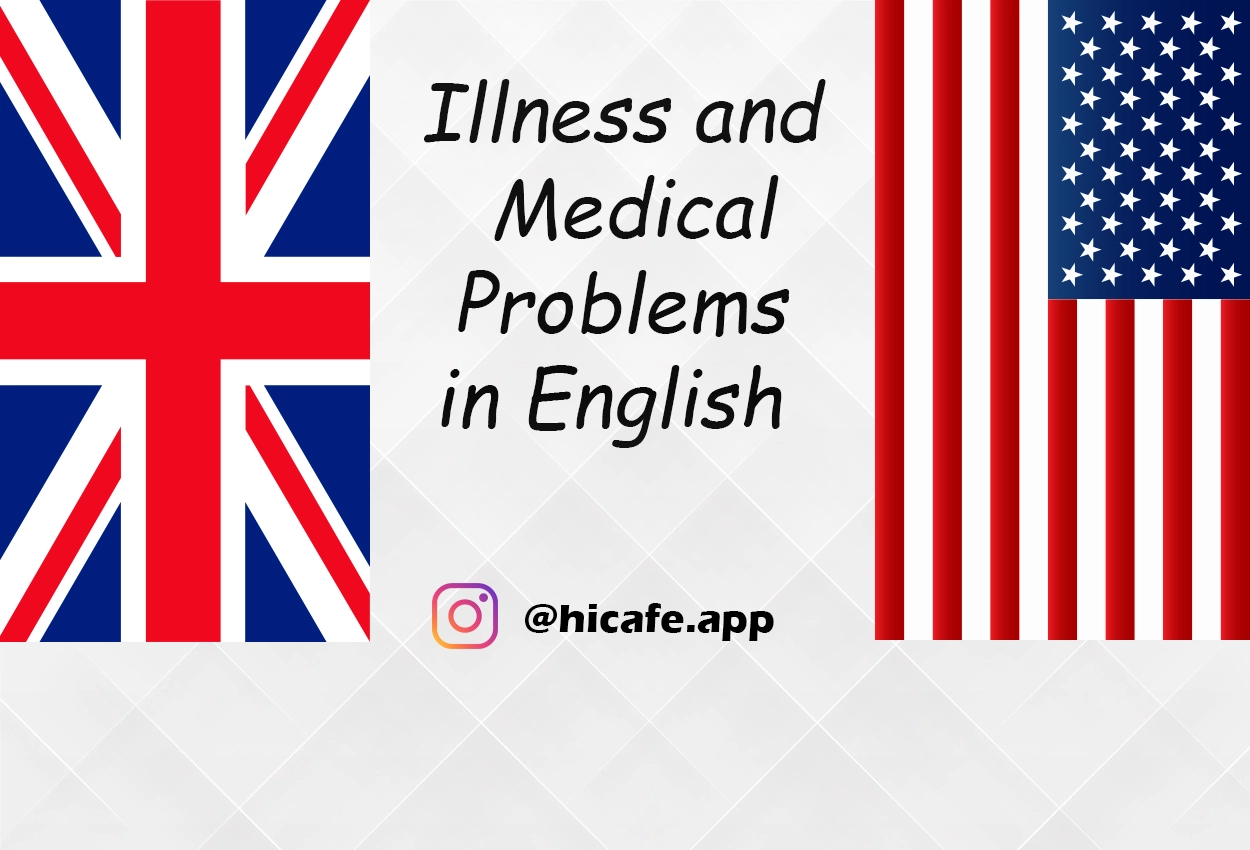In everyday life, it’s common to experience minor medical problems that can range from aches and pains to cuts and sprains. This lesson provides a useful list of words and phrases on talking about health problems in English, from headaches and rashes to insect bites and broken bones.
Previous Conversation Tip Lesson
Look and Looks Like Difference
How to talk about Health Problems in English
Medical problem words and phrases
ache (pronounce the “a” to rhyme with “say”)
You can use ache as a noun with different parts of your body:
- I’ve got a headache, toothache, stomach-ache, backache, earache
Also verb “to ache“:
- After dancing all night, my feet are aching so much today.
a pain
- She’s complaining about a sharp pain in her side.
adjective = painful
- My shoulder is really painful after yesterday’s workout.
Other common problems
a rash = red or irritated skin
- I developed a rash after using that new lotion.
a bite = when an insect or animal bites you
- His arms and legs are covered in itchy mosquito bites.
We frequently use the passive form:
- I got bitten by mosquitoes while camping last weekend.
a sting = when an insect (or plant) stings you (puts poison on your skin)
- The memory of her first bee stings lingered in her mind.
We also often use the passive form:
- My brother got stung by a bee in the garden.
a cut = when you bleed
- I accidentally cut my finger while chopping vegetables.
a sprain = when you hurt a bone but you don’t break it
- She sprained her wrist during volleyball practice.
a broken … (bone)
- a broken ankle, a broken leg, a broken wrist, a broken rib etc
- Unfortunately, he has a broken leg from the skiing accident.
Talking about illnesses
- I feel hot / cold / achy / tired.
We also use have / have got to talk about symptoms and illnesses (mild and severe):
- I’ve got a cold / a cough / a sore throat / the flu.
- He’s got an infection.
- I’ve got a temperature. (= a fever)
- He’s got asthma, bronchitis, cancer (of the + body part), a tumour.
You can also “catch” an illness from another person.
- I caught a stomach bug from my coworker.
- She caught a virus from being around sick patients at the hospital.
Conclusion
By familiarizing yourself with the vocabulary presented in this lesson, you can better express your symptoms and seek appropriate care when needed. Whether it’s a simple ache or a more serious condition, you have to be able to talk about medical issues for maintaining good health and well-being.
Next Conversation Tip Lesson
Related Conversation Lessons
None
Practice Conversation with HiCafe App
By using HiCafe App, you can join free discussion events and Practice English Conversation online or in-person and improve your verbal skills.
All Conversation Lessons
To see and read all of our conversation lessons, you can visit our Improve English Speaking Skills page.
